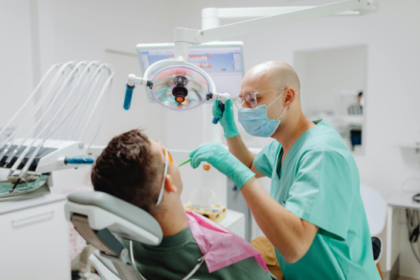Choosing where to seek medical attention for minor illnesses or injuries can be a challenging decision. Urgent care centers offer a practical alternative for non-life-threatening conditions that require prompt attention but do not necessitate an emergency room visit. These facilities often provide accessible care, helping to save time and reduce costs.
Common Conditions
When you need fast medical attention, urgent care centers provide timely treatment for a wide range of non-emergency medical issues. They are instrumental when your primary care doctor is unavailable or when you need quick care for minor health concerns. These facilities bridge the gap between routine doctor visits and emergency room trips, helping patients get the care they need without unnecessary delays.
Common conditions treated at these centers include upper respiratory infections, such as colds, flu symptoms, and sinus infections. Medical staff can assess your symptoms, recommend appropriate treatments, and prescribe medications as needed. Minor injuries such as small cuts requiring stitches, sprains, minor burns, and simple fractures are also handled efficiently, with professionals assessing the need for further specialized care.
Urgent care centers also address skin conditions such as rashes, minor infections, and allergic reactions, providing prompt relief. Other frequently treated issues include urinary tract infections, minor eye problems, and mild digestive concerns that don’t warrant a trip to the emergency room. These facilities provide an accessible and convenient option for managing various health issues with ease.
Diagnostic Services
Most urgent care centers provide a range of diagnostic services to evaluate medical conditions during your visit. X-ray services are often available to assess fractures, joint issues, and chest conditions, enabling healthcare providers to determine the extent of injuries quickly. This imaging capability helps diagnose and address bone trauma efficiently. Many centers offer rapid testing for common illnesses like strep throat, influenza, and COVID-19, enabling prompt diagnoses and treatment recommendations.
Laboratory testing is another service found at many urgent care facilities. On-site blood tests, urine analysis, and throat cultures deliver quick results to guide treatment decisions. Some centers also perform pregnancy tests and basic cardiac screenings, enhancing their diagnostic capabilities. These services allow patients to receive timely and accurate care without the need for extra appointments.
Preventive Care
Urgent centers are expanding beyond treating acute conditions by offering preventive healthcare services, making care more accessible and convenient for busy individuals. Many centers now provide vaccinations, including flu shots, travel vaccines, and routine immunizations for both adults and children. This is helpful when scheduling with a primary care provider isn’t feasible.
Physical examinations for employment, sports, or school are also commonly available at urgent facilities. These routine health checks provide necessary medical clearance without the need for separate appointments. They save time while meeting health requirements for various activities.
Some care centers offer basic health screenings, including blood pressure checks, cholesterol testing, and diabetes monitoring. While these screenings don’t replace comprehensive primary care, they provide quick and accessible insights into health metrics. This convenience helps individuals stay proactive about their health.
Know When to Visit Urgent Care
Urgent care centers provide quick, cost-effective treatment for non-emergency conditions, offering convenience when medical needs arise. Before visiting, call ahead to confirm they can address your concern and check wait times. Many facilities also offer online check-in to reduce waiting room time. Urgent care complements primary care and doesn’t replace the need for a regular doctor to manage ongoing health needs.








